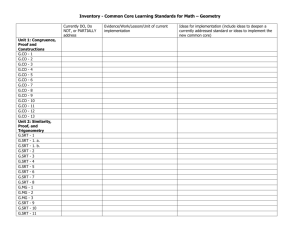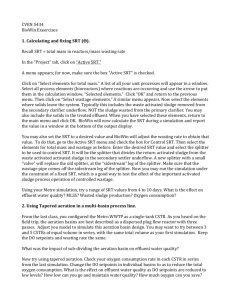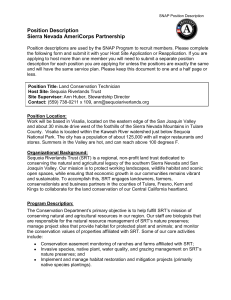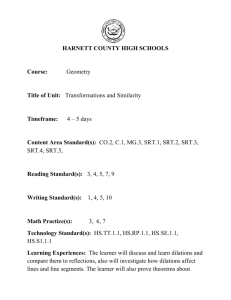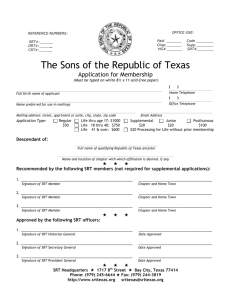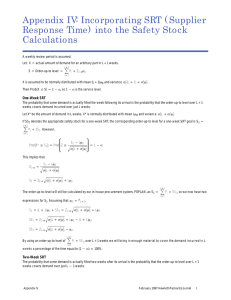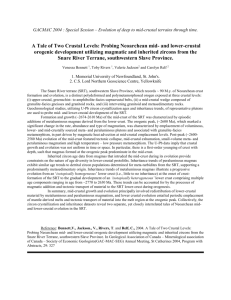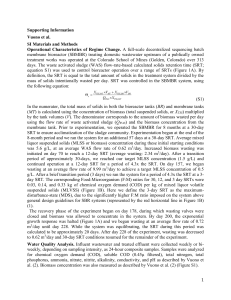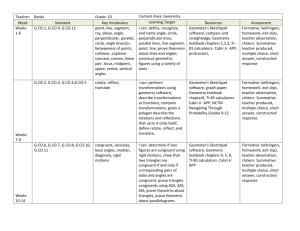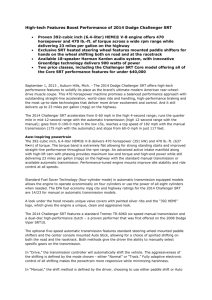Slides
advertisement
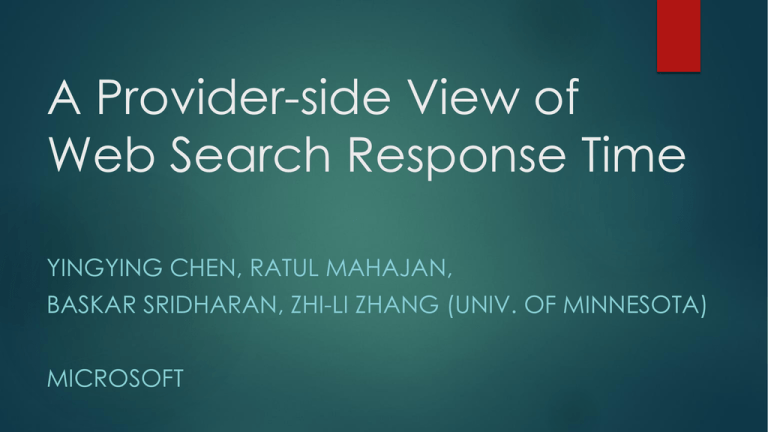
A Provider-side View of Web Search Response Time YINGYING CHEN, RATUL MAHAJAN, BASKAR SRIDHARAN, ZHI-LI ZHANG (UNIV. OF MINNESOTA) MICROSOFT Web services are the dominant way to find and access information Web service latency is critical to service providers as well Google Latency +0.5 sec revenue -20% Bing Latency +2 sec revenue -4.3% Understanding SRT behavior is challenging SRT (ms) 300+t t W T Th F 200+t SRT (ms) M t peak off-peak S Su Our work Explaining Identify Root systemic SRT variation SRT anomalies cause localization Client- and server-side instrumentation 𝑇𝑓𝑠 𝑇ℎ𝑒𝑎𝑑 𝑇𝑓𝑐 𝑇𝑠𝑐 𝑇𝑏𝑟𝑎𝑛𝑑 𝑇𝑖𝑛𝑡𝑐ℎ𝑘1 𝑇𝑟𝑒𝑠𝐻𝑇𝑀𝐿 𝑇𝑡𝑐 𝑇𝐵𝑂𝑃 𝑇𝑖𝑛𝑡𝑐ℎ𝑘2 𝑇𝑒𝑚𝑏𝑒𝑑 𝑇𝑟𝑒𝑓 𝑇𝑠𝑐𝑟𝑖𝑝𝑡 Referenced content Impact Factors of SRT server 𝑇𝑓𝑠 network browser query 𝑇ℎ𝑒𝑎𝑑 𝑇𝑏𝑟𝑎𝑛𝑑 𝑇𝑖𝑛𝑡𝑐ℎ𝑘1 𝑇𝑟𝑒𝑠𝐻𝑇𝑀𝐿 𝑇𝐵𝑂𝑃 𝑇𝑖𝑛𝑡𝑐ℎ𝑘2 𝑇𝑒𝑚𝑏𝑒𝑑 𝑇𝑠𝑐𝑟𝑖𝑝𝑡 𝑇𝑟𝑒𝑓 𝑇𝑓𝑐 𝑇𝑠𝑐 𝑇𝑡𝑐 𝑇𝑛𝑒𝑡 Primary factors of SRT variation Apply Analysis of Variance (ANOVA) on the time intervals 𝑉𝑎𝑟 𝑆𝑅𝑇 = SRT variance 𝑘 𝑉𝑎𝑟 𝑇𝑘 , 𝑆𝑅𝑇 + ƞ Variance explained Unexplained variance by time interval k Explained variance (%) 60 40 20 0 𝑇𝑛𝑒𝑡 server 𝑇𝐵𝑂𝑃 𝑇𝑟𝑒𝑓 𝑇𝑠𝑐𝑟𝑖𝑝𝑡 network 𝑇𝑟𝑒𝑠𝐻𝑇𝑀𝐿 𝑇𝑓𝑐 𝑇ℎ𝑒𝑎𝑑 browser 𝑇𝑠𝑐 𝑇𝑡𝑐 query Primary factors: network characteristics, browser speed, query type Server-side processing time has a relatively small impact RTT Variation in network characteristics Explaining network variations Residential networks send a higher fraction of queries during off-peak hours than peak hours Residential networks are slower residential enterprise unknown RTT (ms) 1.25t 25% t residential enterprise Residential networks are slower Residential networks send a higher fraction of queries during off-peak hours than peak hours Variation in query type Impact of query on SRT Server processing time Richness of response page Measure: number of image Explaining query type variation Peak hours Off-peak hours Browser variations Two most popular browsers: X(35%), Y(40%) Browser-Y sends a higher fraction of queries during off-peak hours Browser-Y has better performance Javascript exec time 1.82t 82% t Browser-X Browser-Y Summarizing systemic SRT variation Server: Little impact Network: Query: Poorer during off-peak hours Richer during off-peak hours Browser: Faster during off-peak hours Detecting anomalous SRT variations Challenge: interference from systemic variations Week-over-Week (WoW) approach 𝑆𝑅𝑇 = Long term trend + Seasonality + Noise Comparison with approaches that do not account for systemic variations WoW False negative 10% False positive 7% One Gaussian Change point model of SRT detection 35% 40% 17% 19% Conclusions Understanding SRT is challenging Changes in user demographics lead to systemic variations in SRT Debugging Must SRT is challenging factor out systemic variations Implications Performance Should understand performance-equivalent classes Performance Should management consider the impact of network, browser, and query Performance monitoring debugging End-to-end measures are tainted by user behavior changes Questions?
